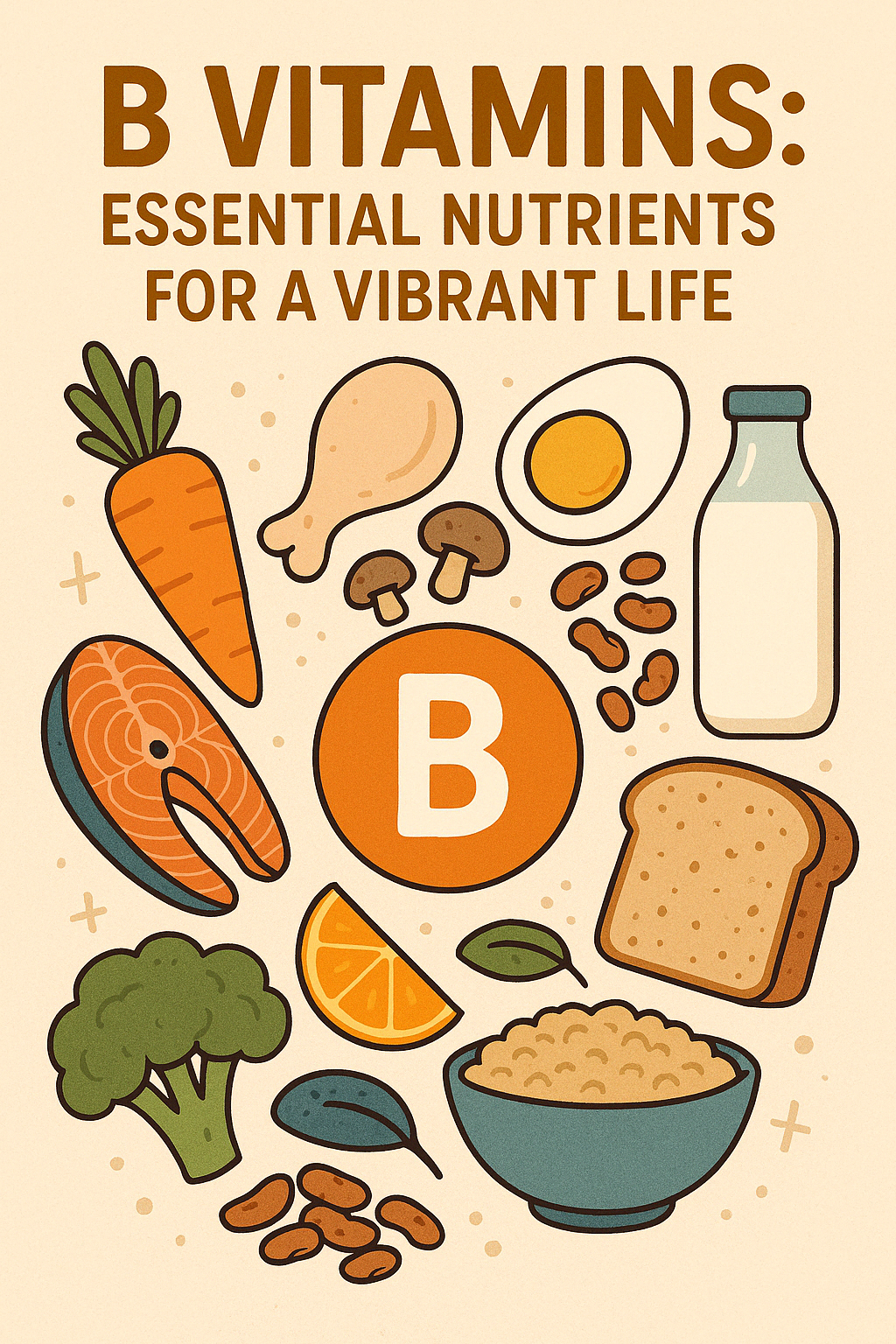Vitamins are essential nutrients that play a crucial role in maintaining our overall health and well-being. In this article, we will delve deeper into specific vitamins, particularly the B vitamins and one fat-soluble vitamin. Unlike my previous articles that provided a brief introduction to vitamins, their roles, and their best food sources, this one will offer more detailed insights.
Water-soluble vitamins are not stored in the body and must be replenished daily. This group includes Vitamin B1, Vitamin B2, Vitamin B3, Vitamin B6, Vitamin B12, Folic Acid, Pantothenic Acid, Biotin, and Vitamin C. These vitamins are vital for various bodily functions and must be obtained through diet or supplements.
Let’s start with Vitamin B1, also known as Thiamine. This vitamin is essential for processing carbohydrates, fats, and proteins. It is required by everyone to produce the energy that fuels the body. Every nerve cell relies on Vitamin B1 to function properly. Excellent food sources of Vitamin B1 include wheat germ, peas, beans, enriched flour, fish, peanuts, and meat. People who are aging, have poor diets, or consume excessive alcohol may experience Vitamin B1 deficiency. While the exact Recommended Dietary Allowance (RDA) for Vitamin B1 is unclear, the amount found in most multivitamin supplements is typically sufficient. Vitamin B1 works synergistically with Vitamin B2 and Vitamin B3.
Vitamin B2, or Riboflavin, aids in releasing energy from foods. It is essential for maintaining healthy eyes, skin, nails, and hair. Rich sources of Vitamin B2 include whole grains, brewer’s yeast, torula yeast, wheat germ, almonds, sunflower seeds, and cooked leafy vegetables. Similar to Vitamin B1, the exact RDA for Vitamin B2 is not specified, but most multivitamin supplements provide an adequate amount.
It is important to note that Vitamin B3, also known as Niacin, may cause a reaction in some individuals. Symptoms such as itching and burning have been reported. The author of this article experienced these side effects firsthand. Unlike water-soluble vitamins, fat-soluble vitamins are dissolved in fat and stored in the body. Therefore, they do not need to be consumed daily. However, overconsumption of fat-soluble vitamins can pose a risk of toxicity.
Vitamin A is a fat-soluble vitamin that should not be consumed in excess. It is crucial for maintaining healthy skin, mucous membranes, bones, teeth, and hair, as well as for good eyesight. Sources of Vitamin A include green vegetables, melon, squash, and tomatoes.
In conclusion, understanding the roles and sources of vitamins is essential for maintaining optimal health. The B vitamins, in particular, play a vital role in energy production and overall bodily function. While this article has focused on specific vitamins, it is important to remember that a balanced diet and consultation with a healthcare professional are key to ensuring you receive all the necessary nutrients.
The information presented in this article is for informational purposes only and is not meant to diagnose, treat, or cure any disease or condition. It is not a substitute for professional medical advice. Please consult a healthcare professional before starting any vitamin supplementation program.
If you are interested in learning more about vitamins and their benefits, stay tuned for more articles on this topic.



